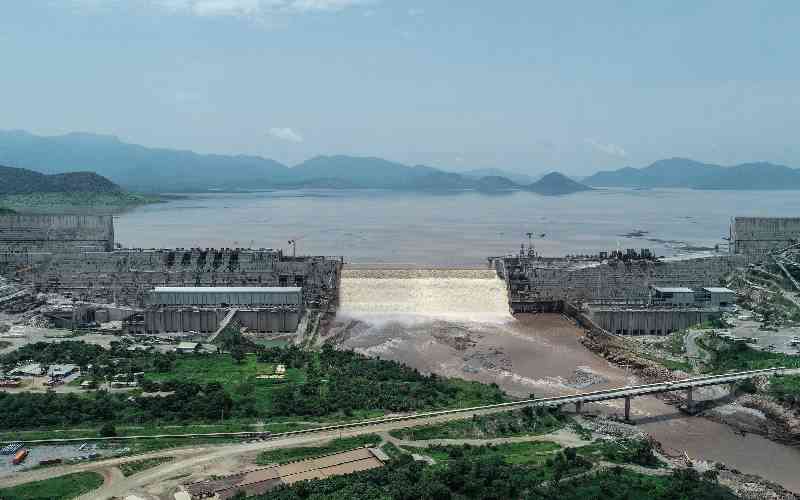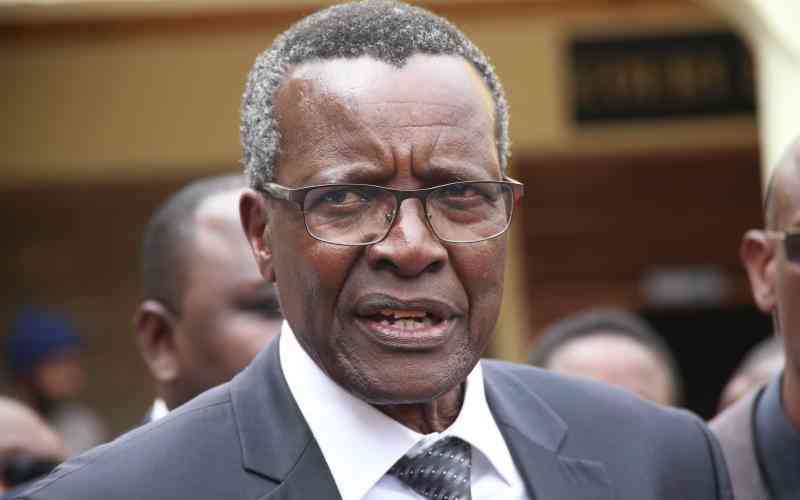Ruto Leads Charge for Climate Accountability at Pivotal Africa Summit in Addis

The second Africa Climate Summit (ACS-2), held in Addis Ababa, Ethiopia, represented a critical juncture for the continent, building upon the foundational momentum established by the inaugural summit in Nairobi in 2023. While the 2023 gathering saw African leaders articulate a unified vision for a sustainable future and ignite hope with a flurry of financial commitments, the 2024 summit was tasked with shifting the focus from grand declarations to the vital concept of accountability. This involved a critical assessment of whether the pledges made previously were translating into tangible action on the ground.
At the 2023 Nairobi summit, billions of dollars were pledged for investments in renewable energy, green manufacturing, and climate-resilient agriculture, including a significant $450 million commitment from the United Arab Emirates for green energy projects. These commitments were hailed as game-changers, promising to unlock Africa's potential as a leader in the green transition. The Nairobi Declaration itself called for a new financial architecture and a united African front. However, a key question for ACS-2 was how much of this promised capital had actually been allocated and, more importantly, how much had reached the communities most in need, highlighting where accountability becomes non-negotiable. The true measure of success for such a summit lies not in the size of its pledges, but in its tangible impact.
An illustrative example of the challenges in accountability is Kenya's Financing Locally Led Climate Action (FLLoCA) programme. Designed to decentralise climate finance and empower local governments and communities to manage their own climate resilience projects, FLLoCA's brilliant idea was to bypass bureaucratic hurdles. Yet, reports suggest that while the framework is promising, a lack of robust accountability measures and transparent tracking has hindered its effectiveness. Delays in fund disbursement and limited community oversight of spending can undermine even the best-intentioned programmes. Accountability, therefore, extends beyond fund managers answering to national governments; it means being responsible to individuals like a grandmother in a drought-stricken village who was promised a borehole or a new crop variety.
The reality remains stark: African countries bear a disproportionate burden from climate change, experiencing more frequent and intense extreme weather events despite historically contributing the least to global emissions. Climate finance is not a luxury, but a matter of survival and justice, crucial for addressing these risks and costs. The second Africa Climate Summit served as a crucial opportunity to reiterate this point, not just as a grievance, but as a collective demand for a new, equitable financial agreement.
President William Ruto played a central role at the ACS-2, departing Nairobi for Addis Ababa to advance Africa’s leadership in climate action and green growth. Among his key engagements, President Ruto officially launched a new report titled “From Nairobi to Addis Ababa: Africa’s Journey of Climate Action and Partnership.” This report tracked progress since the inaugural 2023 summit, took stock of current realities, and outlined pathways for Africa’s future climate leadership. He also witnessed the signing of the cooperation framework for the Africa Green Industrialization Initiative (AGII), a collaborative effort involving African governments, financiers, the African Continental Free Trade Area (AfCFTA) secretariat, and private sector players. This framework aims to coordinate financial and technical support, mobilize investment, and align with key continental priorities such as the Accelerated Partnership for Renewable Energy in Africa and the Alliance for Green Infrastructure in Africa, supported by a joint project preparation facility to fast-track bankable green projects.
As chair of the Committee of African Heads of State and Government on Climate Change, President Ruto utilized the Addis platform to advocate for fair resource valuation, equitable carbon pricing, and reforms in global finance to alleviate debt and climate risks. Beyond the plenary sessions, he participated in high-level thematic meetings with global leaders and development partners, and addressed the Africa-CARICOM Summit, where discussions focused on reparatory justice, debt sustainability, and transcontinental cooperation. A notable engagement included attending the inauguration of the Grand Ethiopian Renaissance Dam (GERD) as chief guest, a symbol of African self-reliance that strengthens Kenya’s energy security through the Ethiopia-Kenya interconnector, providing clean and affordable electricity and supporting industrial growth.
Looking ahead, the summit was a pivotal step on the road to COP30 in Belém, Brazil, urging African leaders to unite around a powerful, unified agenda. This agenda must reflect a shared commitment to a green, resilient future and an unwavering demand for transparency and accountability from all partners. Leaders must demonstrate their commitment to implementing these deals and their ability to hold the global community accountable for its pledges. Ultimately, the future of climate action in Africa will be built from the ground up, with strong, community-rooted movements crucial for ensuring that climate financing translates into tangible benefits for local populations. Initiatives like the Mulika tracking tool and community scorecards are vital steps that need to be scaled up.
The Africa Climate Summit, hosted by Ethiopia from September 8–10, drew more than 45 heads of state and government, policymakers, financiers, academics, businesses, youth, and civil society. Its theme, “Accelerating Global Climate Solutions: Financing for Africa’s Resilient and Green Development,” underscored the urgent need to mobilize resources for adaptation and resilience, marking a launchpad for a new era of climate action defined by meticulous and unwavering accountability.
You may also like...
Forest Firing: Nuno Out, Ange Postecoglou Takes Hot Seat in Sudden Shake-Up

Nottingham Forest has appointed Ange Postecoglou as its new manager, replacing Nuno Espirito Santo. This move signals a ...
World Cup Heartbreak: Super Eagles' Qualification Hopes Dented by South Africa Draw

The critical 2026 FIFA World Cup qualifier between South Africa and Nigeria ended in a 1-1 draw, jeopardizing Nigeria's ...
Emmy Triumphs: 'The Penguin,' 'The Studio,' 'SNL50,' 'The Traitors' Dominate Creative Arts Awards Nights

The Creative Arts Emmy Awards celebrated technical and artistic excellence over two nights, with Apple TV+'s 'The Studio...
007 Shocker: Former Bond Star Eyes Return as Next Agent; Frontrunners Duel, Then Drop Out of Iconic Role

The search for the next James Bond continues with rising star Mike Dickman emerging as a surprise front-runner, alongsid...
Star-Studded 2025 MTV VMAs Unveil Winners and Electrifying Performers Lineup!

The 2025 MTV Video Music Awards crowned Lady Gaga as the big winner, taking home Artist of the Year and other key awards...
Rapper Holy Ten Dares President's Sons in Shocking Instagram Broadcast, Alleges Terrorist Ties

Zimbabwean hip-hop artist Holy Ten has launched explosive accusations against President Emmerson Mnangagwa's sons, claim...
Scandal Rocks Music World: Alexander Brothers Face Explosive Assault Allegations

The prominent real estate brothers Oren, Alon, and Tal Alexander, known for their work in Miami and New York City, face ...
The Chrisleys' Post-Prison Reality: A Glimpse into Their Toughest Chapter Yet

The Chrisley family returns to television with "The Chrisleys: Back to Reality" on Lifetime, following Todd and Julie's ...


)
